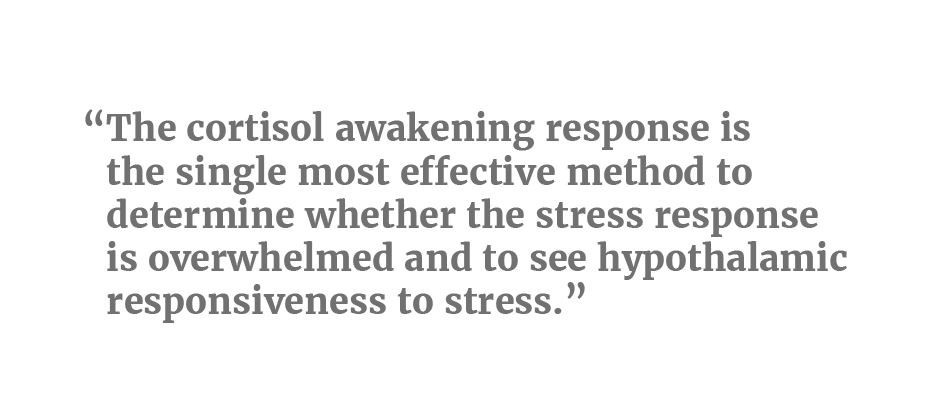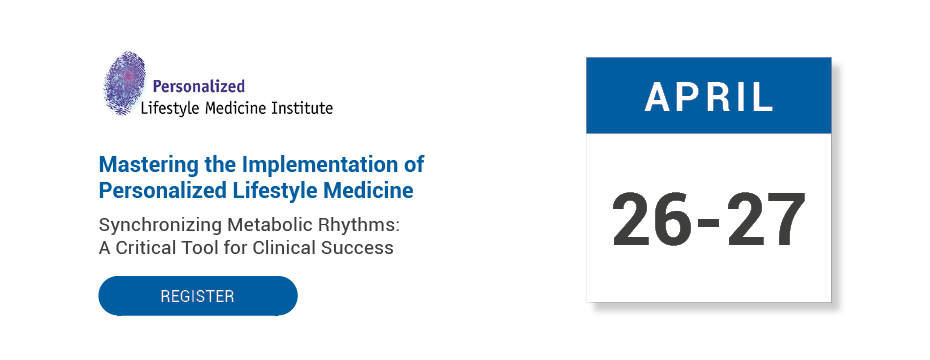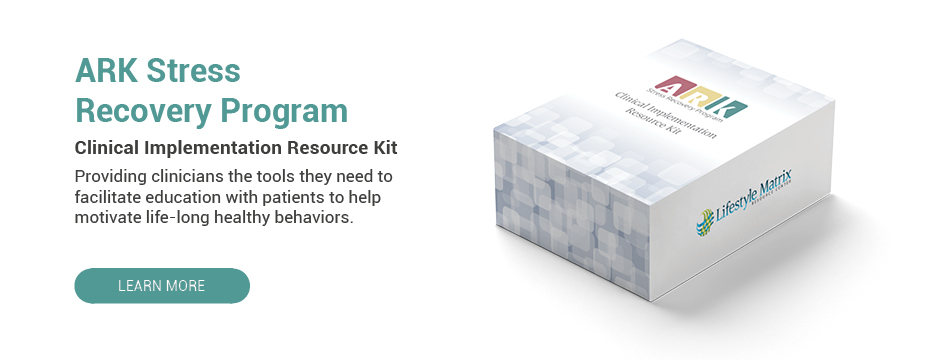After nearly 20 years of clinical practice, I have found one concept makes all the difference between partial and significant clinical effectiveness: understanding and harnessing the power of circadian rhythms.
What are Circadian Rhythms?
Circadian rhythms are biological rhythms that exhibit three primary characteristics: 1) an endogenous free-running 24-hour period (approximately); 2) entrainable, or capable of
phase reset by environmental cues and synchronization to the 24-hour day; 3) exhibits temperature compensation.
Circadian rhythms underpin many common therapies, including:
- Taking statins at bedtime, as cholesterol production in the liver is highest after midnight and lowest during the morning and early afternoon
- Taking pain medications in the evening or at night to provide more relief than taking the same medications in the morning, as this more effectively inhibits the production of cytokines during the night, which trigger morning symptoms
- Intense exercise late in the day, which may tire one out but does not leave time for dissipation of cortisol, a necessary action for ideal growth hormone release
Testing Circadian Rhythms Using the Salivary Hormone Assessment
The salivary hormone assessment is a simple way to accurately assess and reset circadian rhythms of the HPA axis. Salivary hormone testing shows
the effects of stress on the brain over most of a 24-hour period; this is not so with single snapshot serum or pooled specimen urine collection. The traditional 4-point cortisol test has been supplanted by the 6-point salivary test in order to see
the cortisol awakening response (CAR). The CAR is the single most effective method to determine whether the stress response is overwhelmed and to see hypothalamic responsiveness to stress.

Sleep Circadian Rhythms
In addition to the CAR, salivary testing can pinpoint the key reasons a patient struggles with another biological function under circadian influence: sleep! Three key markers to promote
ideal sleep-wake cycles and re-establish circadian rhythm include progesterone, bedtime cortisol and melatonin all of which should be a part of the complete assessment of the hypothalamic stress response and circadian rhythm. Many clinicians do not
realize that sleep is non-uniform and that we do not move through five stages of sleep uniformly. In fact, we spend the majority of the first three to four hours of sleep in stage 3/stage 4 sleep, in which immune function and tissue repair is maximized
under the direction of growth hormone release. Stage 5 sleep, where the brain is recharged through REM sleep, primarily occurs in the latter three or four hours of sleep. Timing of sleep and quality of sleep dramatically inhibits or facilitates adequate
repair of nearly every tissue in the body, including bone density, lean body mass, detoxification, neurotransmitter production, and immune functions. In most circumstances, it is also advisable to consider and screen for apnea, both obstructive and
central in order to reset proper rest and repair cycles.
Understanding, assessing and resetting circadian rhythms may seem daunting, but with the right tools and resources, such as those provided in the ARK Stress Recovery Program, it can become a mainstay in your clinical assessment that delivers consistent results and patient outcomes.
You can learn more about circadian rhythms of the HPA axis by joining Dr. Christopher Mote at the upcoming PLMI Spring Conference in Chicago, IL! Reserve your spot today!

Christopher Mote, DO, DC, IFMCP
Christopher Mote, DO, DC, earned his doctorate in osteopathy from the Chicago College of Osteopathic Medicine at Midwestern University. He earned his doctorate in chiropractic and Bachelor of Science in human biology from the National University of Health Sciences (NUHS) in Lombard, Illinois, and is certified in Functional Diagnostic Medicine. Dr. Mote also serves as the ARK Stress Recovery Program Clinical Expert at the Lifestyle Matrix Resource Center. With a focus on addressing the root cause of health concerns, Dr. Mote specializes in the diagnosis and treatment of chronic health disorders.





